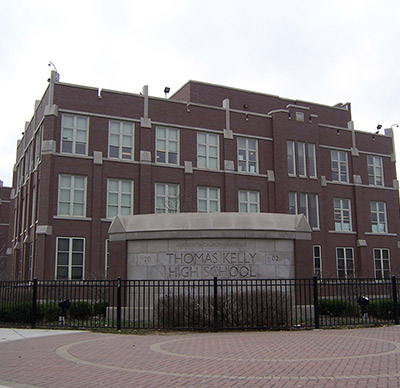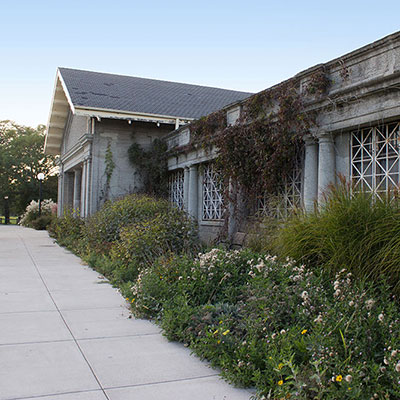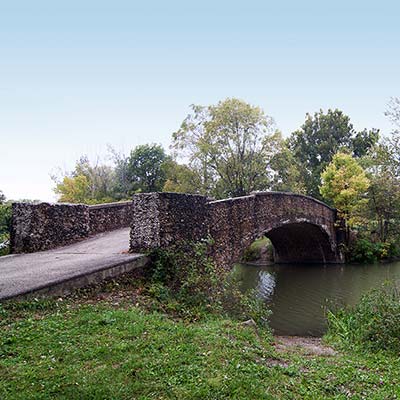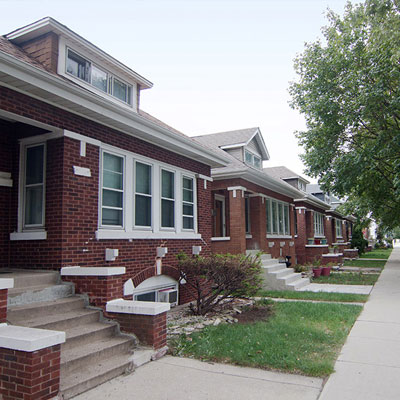Welcome to Gage Park
Gage Park, located on the southwest side of Chicago, is a neighborhood with a rich history and a mix of residential and commercial spaces. Known for its cultural diversity and iconic green space, the area reflects the dynamic character of Chicago's southwest side.
At the heart of the neighborhood is its namesake park, Gage Park. Spanning over 40 acres, the park offers ample opportunities for outdoor activities with walking trails, playgrounds, and open lawns. The historic Gage Park Fieldhouse is a standout feature, hosting community events and recreational programs throughout the year.
Housing in Gage Park is diverse, ranging from historic bungalows to modern apartments, providing a variety of options for those looking to call the neighborhood home. The tree-lined streets and maintained gardens contribute to its appealing residential charm.
The commercial corridors of Gage Park feature an array of businesses, including restaurants, shops, and services while educational opportunities in Gage Park include public and private schools.
Transportation options are accessible, with multiple bus routes running through the area and the nearby Orange Line providing a convenient connection to downtown Chicago. These transit links make commuting or exploring other parts of the city easy.
Gage Park blends its historical significance with its role as a dynamic and diverse community. Its green spaces, local businesses, and convenient location make it a noteworthy neighborhood within Chicago.
-
Looking to Buy? Search Gage Park listings
-
Interested in Selling? Request a Listing Presentation
-
Want More Information? Sign up for our Trends Report
For Sale in Gage Park
-

3400 W 55 Street 1N
$180,000
- 2 beds
- 1 baths
- Gage Park
- Attached Single
-

5359 S Sawyer Avenue
$524,900
- 10 beds
- 6 baths
- Gage Park
- Two to Four Units
-

5127 S Trumbull Avenue
$200,000
- 4 beds
- 2 baths
- Gage Park
- Detached Single
-

5243 S MAPLEWOOD Avenue
$239,900
- 6 beds
- 3 baths
- Gage Park
- Two to Four Units
-

5638 S Maplewood Avenue
$251,000
- 3 beds
- 2 baths
- Gage Park
- Detached Single
-

2548 W 57th Street
$224,900
- 5 beds
- 2 baths
- Gage Park
- Detached Single
-

5816 S California Avenue
$319,999
- 8 beds
- 2 baths
- Gage Park
- Detached Single
-

5147 S Campbell Avenue
$220,000
- 5 beds
- 2 baths
- Gage Park
- Detached Single
-

5544 S California Avenue
$367,750
- 5 beds
- 3 baths
- Gage Park
- Detached Single
-

5009-15 S Homan Avenue
$280,000
- Gage Park
- Land
-

5409 S Sawyer Avenue
$365,000
- 4 beds
- 3 baths
- Gage Park
- Detached Single
-

5028 S Fairfield Avenue
$75,000
- Gage Park
- Land
-

5701 S Maplewood Avenue
$350,000
- 8 beds
- 3.1 baths
- Gage Park
- Detached Single
-

5526 S Albany Avenue
$399,000
- 2 beds
- 2 baths
- Gage Park
- Detached Single
-

4913 S Rockwell Street
$199,000
- 4 beds
- 2 baths
- Gage Park
- Two to Four Units
-

5300 S Kedzie Avenue 201
$99,500
- 2 beds
- 1 baths
- Gage Park
- Attached Single
-

5136 S Richmond Street
$269,900
- 4 beds
- 2 baths
- Gage Park
- Detached Single
-

2208 W 54th Place
$180,000
- 3 beds
- 2 baths
- Gage Park
- Detached Single
-

5727 S ALBANY Street
$420,000
- 4 beds
- 4 baths
- Gage Park
- Two to Four Units
-

5146 S Homan Avenue
$275,000
- 4 beds
- 2 baths
- Gage Park
- Detached Single
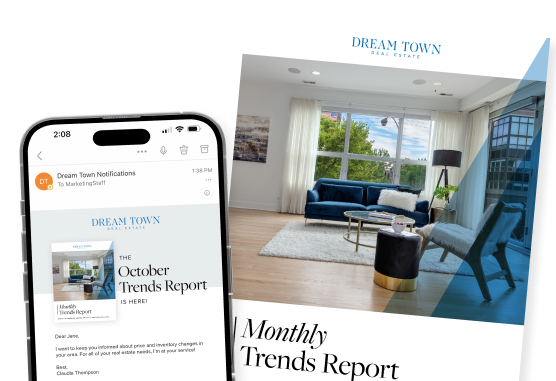
Want more detailed information on Gage Park?
Get a Trends Report delivered to your inbox monthly
Send Me Gage Park Trends









